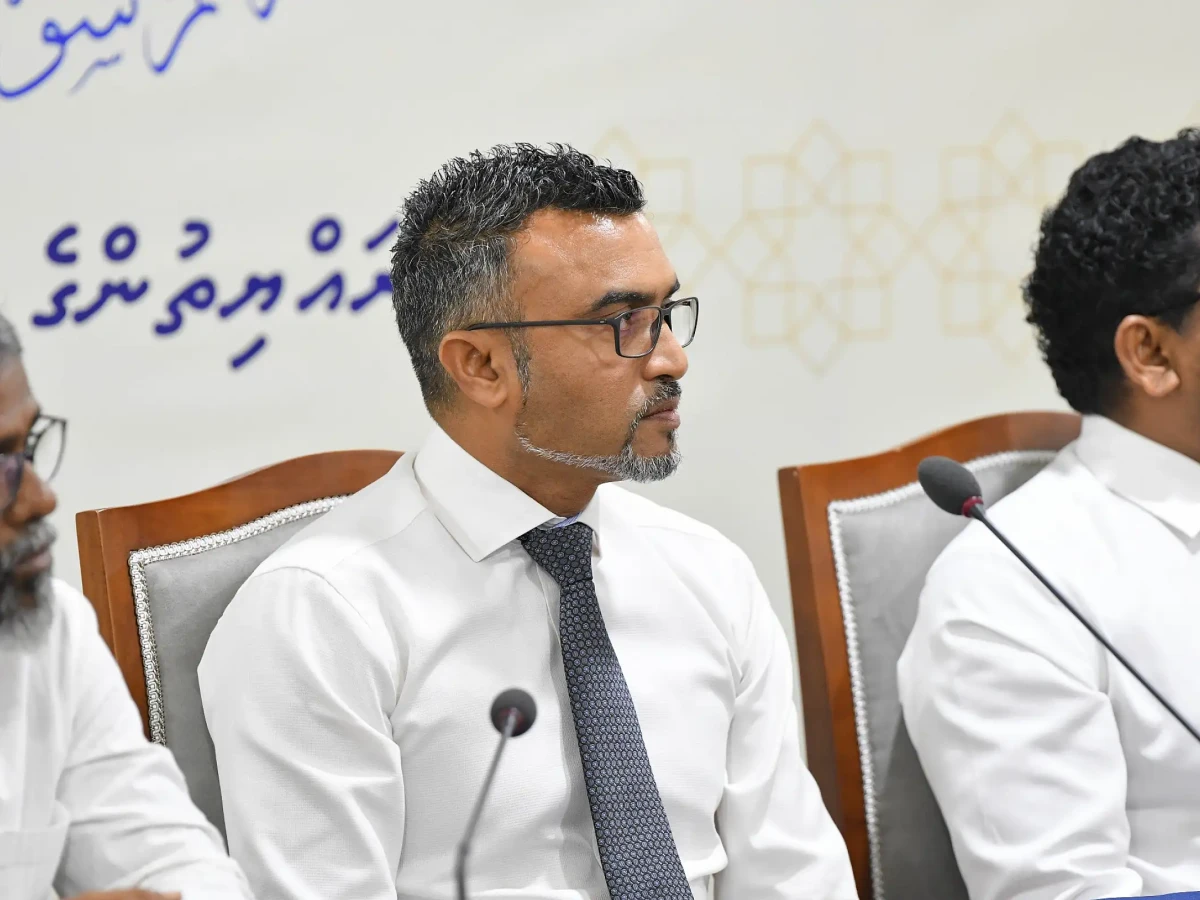
MDP accuses govt of influencing funding via council cuts
The resolution, submitted by the ruling People's National Congress (PNC), seeks to gather the views of Members of Parliament on downsizing councils.
Top Stories
-
MP Mauroof released from custody, receiving hospital treatment
-
House floor sinks in Malé during nearby construction work
-
PNF to hold special rally at Artificial Beach on Wednesday
-
MDP MP says Mauroof arrest may breach parliamentary privileges
-
Complaint filed with JSC over judge’s remarks on defence lawyer
The opposition Maldivian Democratic Party (MDP) has alleged that the government is attempting to influence local council budgets by proposing to reduce the number of councillors through a resolution moved in Parliament.
The resolution, submitted by the ruling People's National Congress (PNC), seeks to gather the views of Members of Parliament on downsizing councils. It expressed concern over the financial cost of maintaining a minimum of five councillors on each island.
The opposition MDP did not support the resolution. Speaking at a press conference after Wednesday's parliament sitting, MDP MPs stated that the government is seeking to exert influence over the 5% of the state budget that is legally allocated to councils.
MDP MP Hussain Ziyad said the 5% allocation is used to cover councillors’ salaries, council staff wages, and other island-level expenses. He noted that while this portion is allocated for 187 councils across the country, the remaining 95% of the state budget is managed centrally.
Ziyad raised concerns about the establishment of two administrative bodies to manage local governance—the Local Government Authority (LGA) and the Ministry of Local Government—stating that this has been done at significant cost. He questioned the effectiveness of creating a separate ministry that reportedly requires between MVR 150 million and MVR 280 million to operate annually.
Ziyad also claimed that the current administration’s intention is to restrict council powers and reduce financial autonomy at the local level. He stated that, in many cases, public land has been removed from council jurisdiction or repurposed for other uses such as tourism.
MDP Parliamentary Group Leader and MP for Hithadhoo South, Ibrahim Nazil, addressed criticisms that councils are not effectively using their allocated funds. He said that councils often pool funds from multiple years to implement meaningful development projects, due to the limited resources available in a single fiscal year.
Nazil criticised the government’s claim that reducing councillor numbers would ease budget pressure. He noted that the proposed reduction would save around MVR 80 million, while lighting displays during two Eid holidays cost MVR 35 million, and lighting across six Eid holidays totals MVR 70 million.
He questioned the government’s priorities: “The people should consider whether it is more beneficial to have lights during festivals or to have elected councillors working closely with communities.”
Nazil argued that the downsizing initiative is not motivated by budgetary concerns, but by political objectives.
The resolution to examine councillor numbers was introduced by Deputy Leader of the PNC Parliamentary Group and Baarah MP Ibrahim Shujau. According to the resolution:
-
The Decentralisation Act has been amended 15 times in 15 years.
-
Four council elections have been held since the introduction of the system.
-
Thousands of councillors have been elected, and billions of Maldivian Rufiyaa have been spent.
-
No substantial improvements in administrative efficiency or local development have been observed.
The resolution noted that the decentralisation model was introduced with expectations that it would empower local communities through elected representatives. However, it argued that the system has increasingly become a platform for political party activists rather than serving the intended administrative and development functions.
Related
Related

Ali Azim promises smart city, 50% cut in electricity bills

Adam has no MDP values, covers up Muizzu’s graft: Ali Azim

MDP warns of uncertainty as council changes remain unclear

